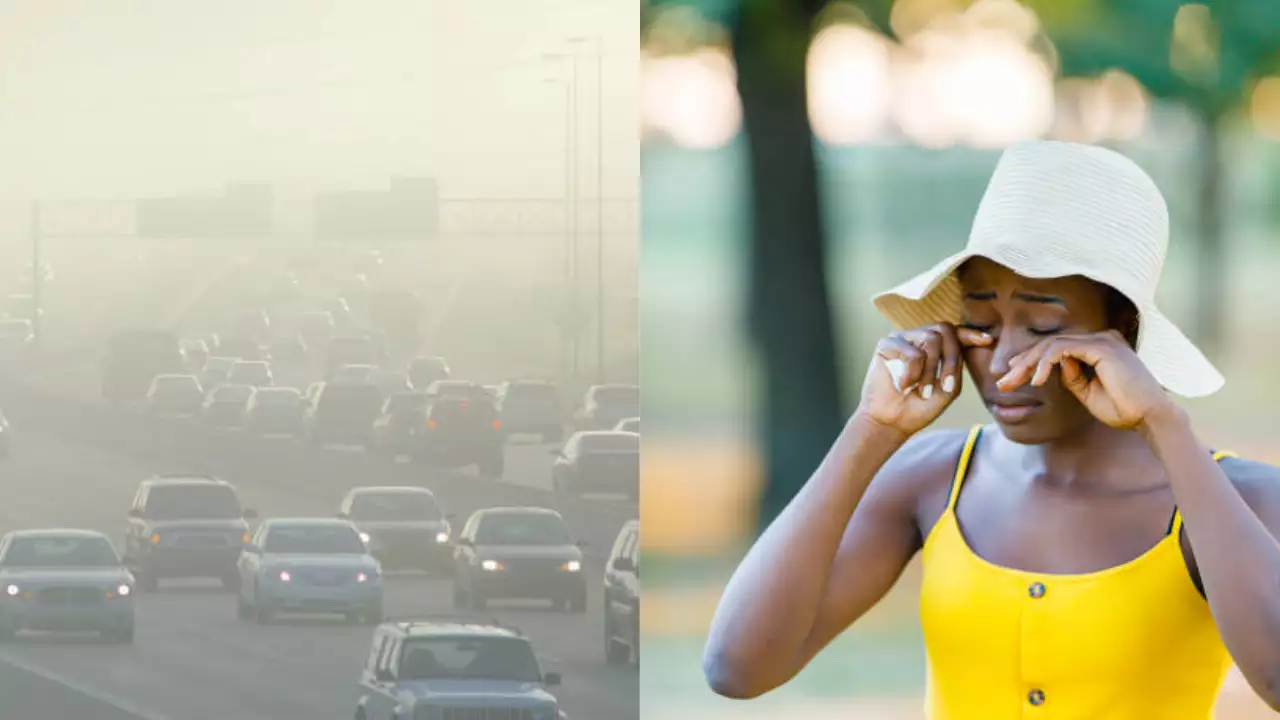Debosmita Ghosh • 21 Nov 2024
Delhi Air Pollution: Experts Say Poor Air Quality Causing Surge In Dry Eyes And Allergies In Children And Adults

Experts Say Poor Air Quality Causing Surge In Dry Eyes And Allergies
Photo : iStock
The air quality in Delhi has improved slightly with the Air Quality Index (AQI) moving from the ‘severe’ category to “very poor’. Delhi-NCR has been witnessing very hazardous air quality for several days. According to the Central Pollution Control Board (CPCB), the AQI in Delhi was recorded at 379 on Thursday morning.
Several areas within Delhi, including Chandani Chowk, IGI Airport and Jawaharlal Nehru Stadium, reported ‘very poor’ air quality with AQI readings ranging from 338 to 394. However, some areas like Anand Vihar and Wazirpur remained in the ‘severe’ category with AQI readings exceeding 400.
While the national capital continues to battle poor air quality, the toxic pollutants are causing severe health implications. Experts said that the poor AQI is causing dry eyes, irritations and allergies in the eyes of children and adults.
According to a report in IANS, Dr Rohit Saxena, professor of ophthalmology, R P Centre for Ophthalmic Sciences, AIIMS New Delhi, said, “Pollution poses a serious threat to our eyes, particularly to the conjunctiva and the cornea, which is the first point of contact with harmful particles in the air. The fine particulate matter, allergens, and toxins in polluted environments can irritate the ocular surface and make it highly susceptible to infections.”
He added, “This is especially of concern in children and adults already experiencing dry eyes or allergic reactions, as these conditions worsen with exposure to poor air quality.”
Poor air quality can impact your eyes. Common symptoms include itching, watering, burning, redness, and a general feeling of soreness. Dr Smriti Goel, Consultant of Eye Surgery at Max Super Speciality Hospital, Patparganj, said, “In severe cases, air pollution may lead to pain or blurred vision, requiring immediate medical attention.”
Goel said, “Use lubricating drops to maintain moisture and apply cold compresses to relieve irritation. Wear protective glasses or sunglasses to shield your eyes from dust and pollutants. For allergy-prone individuals, anti-allergic eye drops and timely treatment are essential. These measures can help safeguard your eyes from pollution-related issues.”
The doctor suggested avoiding over-the-counter medications other than lubricating eye drops unless prescribed by a doctor.
Other tips to keep your eyes protected
Wear Protective Eyewear
Use wraparound sunglasses or goggles to shield your eyes from dust, debris and pollutants in the air.
Stay Indoors During High Pollution
Limit outdoor activities when air quality is poor, especially during peak pollution hours to reduce exposure to irritants.
Use Artificial Tears
Apply preservative-free lubricating eye drops to keep your eyes moist and flush out irritants that may cause dryness or discomfort.
Maintain Indoor Air Quality
Use air purifiers indoors and keep windows closed to reduce exposure to outdoor pollutants that can irritate your eyes.
Avoid Rubbing Your Eyes
Touching or rubbing your eyes can introduce pollutants or allergens, thereby, worsening irritation. Wash your hands frequently to reduce the risk.
Stay Hydrated
Drink plenty of water to maintain overall hydration which supports tear production and prevents dryness in the eyes.
(With inputs from IANS)
Get Latest News Live on Times Now along with Breaking News and Top Headlines from Health and around the world.